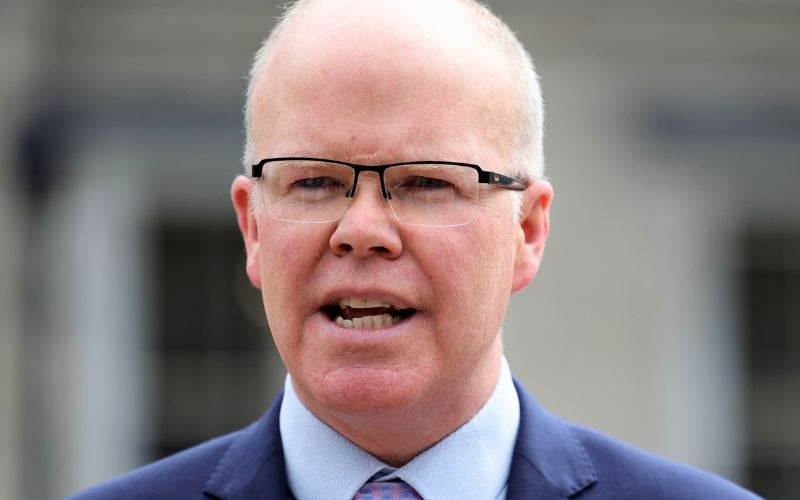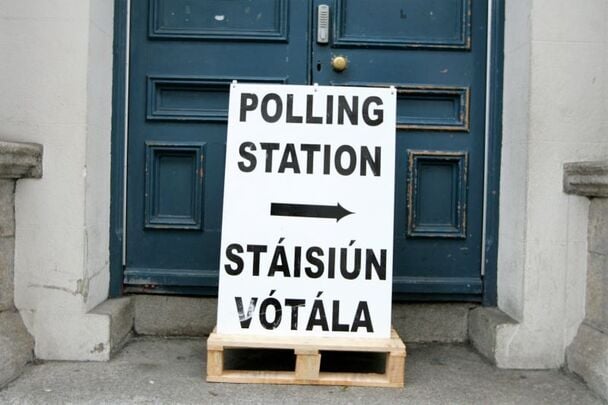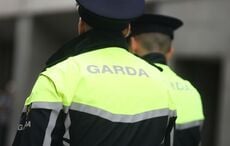The Irish political party Aontú has launched a new Bill that seeks to amend the Irish Constitution to allow Irish citizens in the North of Ireland to be able to vote in Ireland's Presidential elections.
Unlike citizens in other countries, Irish citizens who are not living in the Republic of Ireland cannot cast votes in Irish elections from abroad - including from Northern Ireland, where, as per the Good Friday Agreement, people can choose to be Irish, British, or both.
"Subject to a limited number of exceptions, Irish citizens resident outside the State do not have the right to vote at elections or at referendums held in the State," Ireland's Department of Foreign Affairs says.
This is in relation to Ireland’s Electoral Act of 1992, which dictates that Irish citizens who have left Ireland for no longer than 18 months are still entitled to vote.
Thus, Irish citizens living outside of the Irish State - including in Northern Ireland - for more than 18 months are not permitted to vote in Irish elections; it's an issue that has been the focus of debate for many years.
The conservative Irish political party Aontú now says it has submitted the “Thirty-ninth Amendment of the Constitution (Voting Rights in Presidential Elections) Bill 2025” to the Bills Office in the Dáil.
In an explanatory memorandum of the Bill, Peadar Tóibín, the leader of Aontú and TD for Meath West, says: "The purpose is to ensure that all adult citizens of Ireland who are (i) entitled under current law to vote in a Dáil or Presidential election or (ii) ordinarily resident outside the State but in the island of Ireland, have the right to vote in Presidential elections, subject to compliance with relevant electoral law."
Tóibín launched his party's bill at the Aontú Easter 1916 Commemoration at Arbour Hill in Dublin last weekend.
“In October this year, the election for the 10th President of Ireland will take place," Tóibín said.
"However, under the current law, over one million Irish people living in the north of Ireland will not be allowed to vote in that election.
"The Good Friday Agreement confirmed that people born in the north of Ireland have a right to be an Irish citizen.
"Indeed, currently nearly 700,000 people in the north of Ireland have exercised that right, are Irish citizens and hold an Irish passport.
"Irish citizens in the north of Ireland have a right to stand in the election to be the President of Ireland.
"Yet under the current law, the Irish state refuses them the right to vote."

TD Peadar Tóibín, leader of Aontú, speaking in Dublin. (RollingNews.ie)
Tóibín took aim at the Irish Government for "withholding democratic rights from 700,000 Irish people in the North," which he called "shocking" and "anti-democratic."
He said: “The power to grant Irish citizens the right to vote in Presidential elections in Ireland is not held by the London government. It is not held by the Stormont Executive. It is in the gift of the people of this state and the Dáil.
"It is this government that is preventing the full Irish nation voting as one for the first time since 1918."
Tóibín said it would be "historic" if his party's bill were passed, adding: "It would be the most significant act of democratic self-determination since 1918."
Tóibín said his party's bill is not "zero sum," noting that it "removes nothing from the rights of our unionist brothers and sisters, yet it confers democratic rights to all Irish people."
He concluded: "This Easter, as we remember the men and women of 1916 who struggled and sacrificed their lives not for partitioned independence, but for full Irish independence, I urge Micheál Martin and Simon Harris to put narrow political self interest aside, back the Aontú Bill and allow the next Irish President be representative all of the people of Ireland."
Voting rights for the Irish abroad
The issue of voting rights for Irish citizens abroad has been simmering for years. Despite organized efforts from advocates, as well as promises from leading politicians, a referendum has yet to be held.
A 2013 report from the Irish Convention on the Constitution recommended that Irish citizens resident outside of Ireland should have the right to vote in Irish presidential elections.
In 2016, VotingRights.ie was founded to advance the cause of emigrant voting. The global coalition of Irish emigrant groups wrote to then-Taoiseach Enda Kenny calling for a referendum on the matter in 2017.
During a St. Patrick's Day visit to the US in March 2017, Taoiseach Enda Kenny confirmed the Government had decided to move forward with plans to hold a referendum to give the right to vote in presidential elections to Irish citizens abroad, including those in Northern Ireland.
That same month, Ireland's Department of Housing, Planning, Community and Local Government and Department of Foreign Affairs and Trade published an Options Paper which outlined seven options for eligibility criteria and associated implementation measures.
In 2018, it was announced that it was intended for the referendum to be held in late May / early June of 2019, on the same date as the local and European elections.
However, in February 2019, the government decided that the referendum would be postponed due to Brexit.
In September 2019, the Thirty-ninth Amendment of the Constitution (Presidential Elections) Bill 2019 was initiated in Dáil to facilitate the holding of a referendum, but the Bill lapsed with the dissolution of the 32nd Dáil Éireann.
However, the Bill was later restored to the Dáil Order Paper.
Providing an update on the Bill last October, TD Sean Fleming, Minister of State at the Department of Foreign Affairs, said: "The commitment set out in the Programme for Government to hold a referendum on extending the franchise at presidential elections to Irish citizens living outside of the State remains in place.
"The enabling legislation required in order to hold such a referendum is currently before Dáil Éireann (the Thirty-Ninth Amendment of the Constitution (Presidential Elections) Bill) and its timing remains under consideration.
"Once the legislation has been approved by the Dáil and Seanad, the Minister for Housing, Local Government and Heritage can then make an order setting the day upon which a referendum will take place."
Also in October, a public petition on voting for Irish-born citizens abroad was considered by the Joint Committee on Public Petitions and the Ombudsmen in October.
However, the Bill lapsed again upon the dissolution of the 33rd Dáil Éireann.
Unlike the previous Programme for Government, the newest Programme for Government, which was adopted earlier this year, does not provide for a referendum on voting rights for the Irish diaspora, a move that was slammed by advocates.




Comments